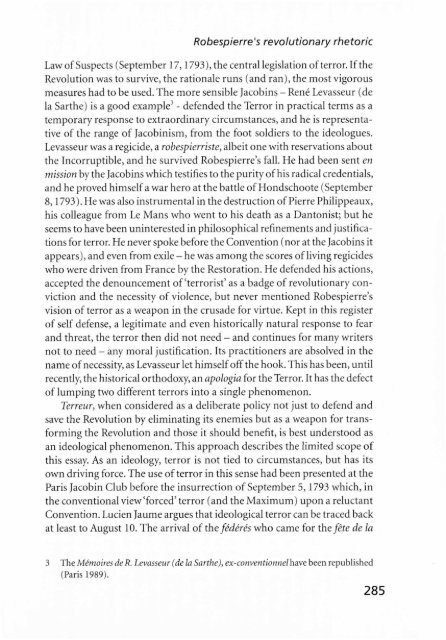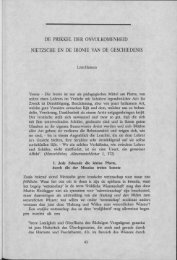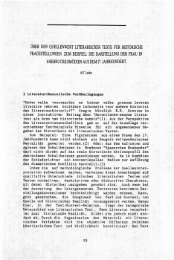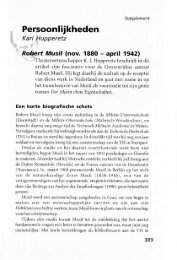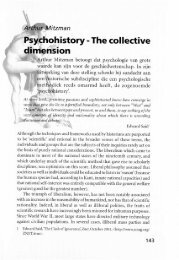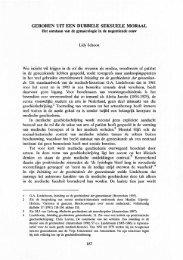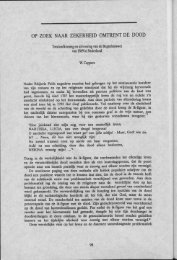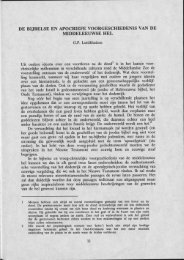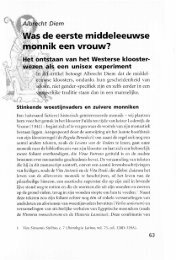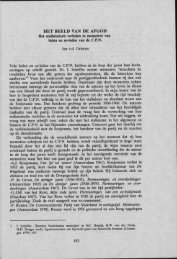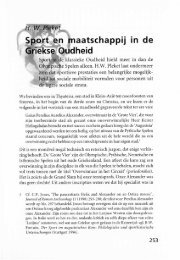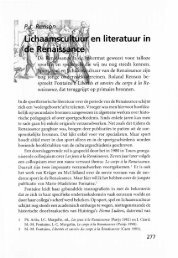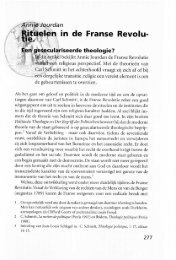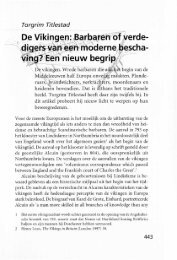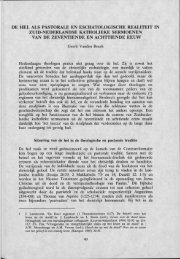Robespierre's revolutionary etoric - Groniek
Robespierre's revolutionary etoric - Groniek
Robespierre's revolutionary etoric - Groniek
You also want an ePaper? Increase the reach of your titles
YUMPU automatically turns print PDFs into web optimized ePapers that Google loves.
<strong>Robespierre's</strong> <strong>revolutionary</strong> rh<strong>etoric</strong><br />
Law ofSuspects (September 17, 1793), the centrallegislation ofterror.lfthe<br />
Revolution was to survive, the rationale runs (and ran), the most vigorous<br />
measures had to be used. The more sensible Jacobins - René Levasseur (de<br />
la Sarthe) is a good example 3 - defended the Terror in practical terms as a<br />
temporary response to extraordinary circumstances, and he is representative<br />
of the range of Jacobinism, from the foot soldiers to the ideologues.<br />
Levasseur was a regicide, a robespierriste, albeit one with reservations about<br />
the lncorruptible, and he survived <strong>Robespierre's</strong> fall. He had been sent en<br />
mission by the Jacobins which testifies to the purity ofhis radical credentials,<br />
and he proved himselfa war hero at the battle ofHondschoote (September<br />
8,1793). He was also instrumental in the destruction ofPierre Philippeaux,<br />
his colieague from Le Mans who went to his death as a Dantonist; but he<br />
seems to have been uninterested in philosophical refinements and justifications<br />
for terror. He never spoke before the Convention (nor at the Jacobins it<br />
appears), and even from exile - he was among the scores ofliving regicides<br />
who were driven from France by the Restoration. He defended his actions,<br />
accepted the denouncement of'terrorist' as a badge of <strong>revolutionary</strong> conviction<br />
and the necessity of violence, but never mentioned <strong>Robespierre's</strong><br />
vision of tenor as a weapon in the crusade for virtue. Kept in this register<br />
of self defense, a legitimate and even historically natural response to fear<br />
and threat, the terror then did not need - and contiJ1UeS for many writers<br />
not to need - any moral justification. lts practitioners are absolved in the<br />
name ofnecessity, as Levasseur let himselfoffthe hook. This has been, until<br />
recently, the historical orthodoxy, an apologia for the Terror.lt has the defect<br />
of lumping two different terrors into a single phenomenon.<br />
Terreur, when considered as a deliberate policy not just to defend and<br />
save the Revolution by eliminating its enemies but as a weapon for transforming<br />
the Revolution and those it should benefit, is best understood as<br />
an ideological phenomenon. This approach describes the limited scope of<br />
this essay. As an ideology, terror is not tied to circumstances, but has its<br />
own driving force. The use of terror in this sense had been presented at the<br />
Paris Jacobin Cl ub before the insurrection ofSeptember 5, 1793 which, in<br />
the conventional view'forced' tenor (and the Maximum) upon a reluctant<br />
Convention. Lucien Jaume argues that ideological tenor can be traeed back<br />
at least to August 10. The arrival of the fédérés who came for the fête de la<br />
3 The Mémoires de R. Levasseur (de la Sarthe), ex-conventionnel have been republished<br />
(Paris 1989).<br />
285


